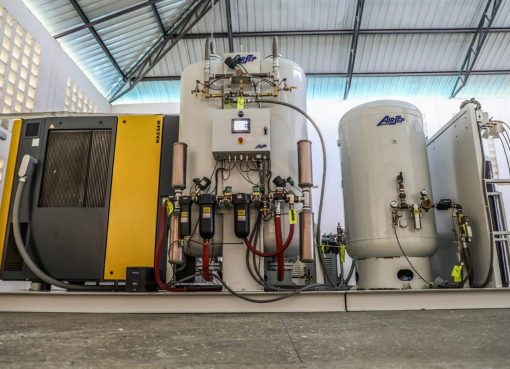Many households in Trans Nzoia County have been planting avocado on a small scale for food and as a source of income.
In most cases marketing has been done in local markets with middlemen exploiting farmers and consumers buying the fruit in low qualities.
For many years, the fruit has been sold depending on its size and farmers accepted whatever the buyers offered. The farmers lacked knowledge on good management practices and generally on the quality of the fruit that could fetch more money. The only value addition farmers could do is to ripen the fruit before selling it locally.
When Governor Patrick Khaemba came to power in 2013 upon devolution, his main agenda was to encourage farmers to diversify.
Apart from growing maize which is the main cash crop in Trans Nzoia, Khaemba also asked farmers to take to avocado farming.
The governor also told farmers that avocado is one of the major export crops within horticulture that was fetching good money and if farmers turned to the fruit they would increase their incomes.
The governor had looked at the dwindling prices of maize that had disadvantaged farmers in the region. He then set up a programme that saw a few farmers get certified avocado seeds that could lead to quality fruits at the end of two and half periods to maturity.
Initially many farmers were skeptical on the idea and feared that venturing into the activity might as well be bad owing to the poor market. Some even politicized the venture saying that local leaders wanted them to abandon maize farming so that they could benefit through importing the cereal.
Ideally, marketing of any farm produce has been key to any farming venture. From maize farming to sugar cane growing, what disadvantages farmers is lack of market for the crops.
A few farmers who heeded the governor’s advice to plant avocado are now reaping big from the fruit. KTL –FARMING LTD Organization is working with Trans Nzoia county government to buy the fruit and export it.
A few fruits that don’t meet international standards are being sold in Murang’a County. The organization has almost 4,000 farmers both in Trans Nzoia and Bungoma that it has contracted.
The CEO of the organization Ibrahim Simiyu said the fruit is in high demand in European countries and farmers should plant more avocados to meet the increasing demands.
According to the CEO, the seedlings planted two and half years ago are now ready for harvesting and farmers are reaping big.
He entered into an informal contract with the county government where he started selling seedlings to the farmers. The county government also subsidized the seed at sh100 per tree. The devolved unit has been championing avocado as one of its value chains besides local chicken and dairy. They also promote bananas and maize.
According to Simiyu, farmers are happy with the marketing strategy whereby they are given cash upon harvesting the fruit.
“What attracts farmers to us is that we pay upon harvesting. It’s cash on delivery,” he told KNA in Marambachi village in Trans Nzoia county where he has also developed a tree nursery and sells avocado seedlings to farmers.
He supports farmers through extension services for better management practices to meet the international standards. He estimates that the county has over 1 million avocado trees but hopes to raise the number in both Trans Nzoia and Bungoma to 2 million seedlings through extension services.
Simiyu collects 46 tons of the fruit in a week and says the international market is in high demand for more fruits. He buys a kilo of hass fruit at sh. 75 per kilo and Furte between sh. 40 to 50 a kilo.
He says that many homes in Trans Nzoia have at least an avocado tree but little attention is paid to the tree for income. A few people have sold the fruit to his organization and are now planting more avocado trees for more money.
According to Simiyu, the peak harvest for the tree is at 8 years when farmers reap the highest. Once it is planted, the tree can take as many as 50 years in production. The only difficult year is the first two and half years when a farmer does not get anything.
He said that the tree can produce as many as 600 fruits in a year giving a farmer up to sh. 15,000 per tree per year.
On average, a farmer can get in an acre of avocado trees in a year sh. 1million if quality standards are strictly followed. This according to Mr. Simiyu will fetch more money compared to maize farming where a farmer will get on average sh. 50,000 in an acre per year.
He said that farmers with big farms can diversify for more income at family level.
On her part, a small scale farmer in Sibanga, Mary Wafula said the ready market for her five trees had motivated her to plant more trees as the profits are promising. I was surprised when KTL FARMING limited came to my farm to harvest the fruits and paid me instantly. I was excited, she added.
By Pauline Ikanda




